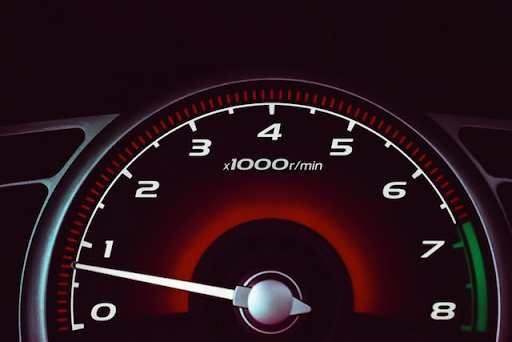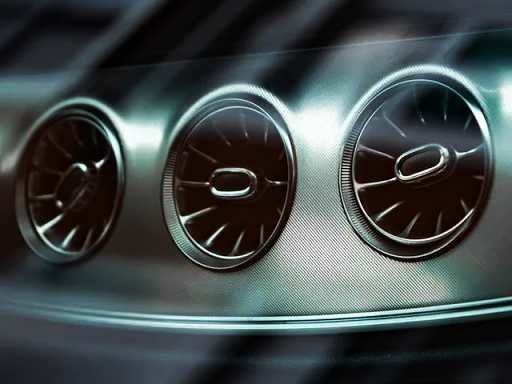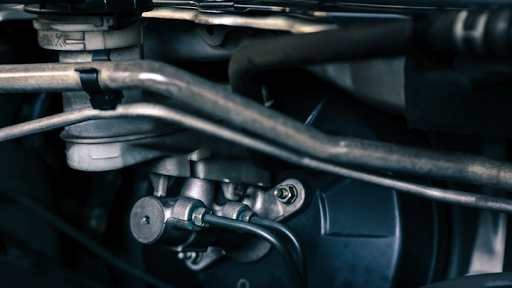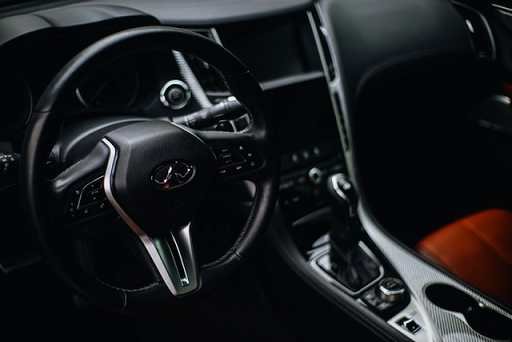Rpm Go Up And Down
If your car’s RPM is going up and down while it’s parked and you’re not even touching the gas, it might seem a bit weird or worrying at first. But, it’s usually because of a few common problems that can be fixed.
Things like bad spark plugs, transmission issues, crankshaft sensor problems, or even small air leaks could be the cause.
In this guide, we’ll talk about why this happens and how you can fix it. I know it might feel a bit overwhelming if it’s your first time dealing with something like this, but understanding what’s going on with your car is a big step towards fixing it.
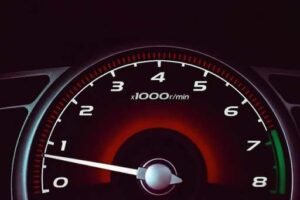
How to Recognize Abnormal Fluctuation in RPM?
Understanding the causes of RPM fluctuation and how to fix it begins with the recognition of the problem. For experienced drivers, checking the RPM of their vehicles is second nature.
However, if you’re a beginner and unsure how to recognize abnormal fluctuation in the RPM of your vehicle, pay attention to specific symptoms.
A sudden change in your engine’s sound, vibration, or shaking of the vehicle, difficulty in starting the vehicle, and when the car loses acceleration or power are clear indicators.
These signs can guide both novice and seasoned drivers in identifying when their car is not performing as it should, leading to timely and effective troubleshooting.
What Is the Meaning of RPM?
RPM, short for rotations per minute, is a term used to measure the number of times the crankshaft of a car turns within a minute.
This elongated metal rod extends from the engine’s base to the top of the transmission, playing a crucial role in the vehicle’s operation. The RPM of a vehicle helps determine how fast the car’s crankshaft is moving, allowing mechanics and drivers to sense any potential risk and make the required changes for optimal performance.
A higher RPM indicates higher speed and, consequently, more power, which explains why racing cars have high RPMs and can be accelerated to around 10,000 RPM, showcasing their immense power and agility on the track.
Causes of RPM Going Up and Down While Parked
Now that you know what RPM means and can spot when it’s acting weird, let’s move to the part you’ve probably been waiting for the most: finding out why it happens.
Deteriorated Spark Plugs
One often overlooked cause for abrupt fluctuations in your vehicle’s RPM when parked is deteriorated spark plugs. These vital components are essential for generating a strong spark that ignites the fuel-air mixture in the engine, ensuring smooth running.
Over time, spark plugs can wear out or become fouled, losing their efficiency. This degradation directly impacts the engine’s ability to maintain consistent power, leading to RPM fluctuations as the system attempts to compensate for the lost efficiency.
Regular inspection and replacement of spark plugs are crucial maintenance tasks that can prevent such issues, ensuring your vehicle operates at its best. Ignoring this can lead to a range of performance problems, from poor fuel economy to engine misfires, all of which underlines the importance of keeping these components in top condition.
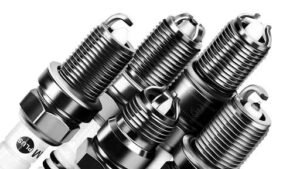
Problem with the Ignition Wires
A problem with the ignition wires can be a subtle yet significant cause behind the RPM of your vehicle rising and falling unexpectedly. These wires, essential for conducting the electrical current needed to spark the fuel-air mixture, can become damaged or worn out over time. When this happens, resistance in the circuit increases, leading to insufficient current reaching the spark plugs. This irregularity can disrupt the engine’s idle speed, causing the RPM to fluctuate.
To ensure the smooth running of your vehicle, it’s crucial to have the ignition wires regularly checked and replaced as necessary. Ignoring these signs not only affects the performance but could lead to more significant engine issues down the line.
Issues with the Carburetor
Issues with the carburetor stand out as a significant potential cause of RPM fluctuation in vehicles. When the carburetor is not functioning properly due to being clogged or dirty, it hampers the engine’s ability to receive the right amount of fuel.
This imbalance forces the engine to constantly adjust and compensate for the lack of fuel, causing the RPM to fluctuate. Regular maintenance to ensure the carburetor is clean and free of debris is essential for smooth engine operation and to prevent RPM issues.
Ignoring such maintenance can lead to inefficient fuel consumption and reduced power output, underscoring the importance of addressing carburetor problems promptly.
Vacuum Leaks
Vacuum leaks are a notorious issue for causing the RPM of a vehicle to go up and down. When there’s a leak in the vacuum line, it leads to a loss of engine vacuum, which is critical for the engine to operate efficiently.
This loss disrupts the air-fuel ratio, causing the engine to run lean and forcing the RPM to fluctuate as the engine tries to adapt. Detecting a vacuum leak can be as simple as applying a water and soap solution to suspected areas; the appearance of bubbles can indicate the presence of a leak.
Once identified, the fix can range from tightening connections to replacing damaged lines, ensuring the engine returns to its optimal state. Ignoring vacuum leaks can lead to more significant engine performance issues, making timely detection and repair crucial.
Fuel Injector Clogging
Fuel Injector Clogging is a common yet often overlooked reason behind abrupt fluctuation in your vehicle’s RPM. When the injector is clogged, the engine receives an inadequate supply of fuel, leading to stalling and surging.
These symptoms not only affect performance but also the smooth operation of the vehicle. Utilizing a fuel injector cleaner or a high-pressure air hose can effectively dislodge the clog, restoring proper fuel flow and engine function.
Regular maintenance, including cleaning the fuel injectors, is essential to prevent this issue from recurring. Ignoring such signs can exacerbate the problem, resulting in more severe engine issues and erratic RPM levels.
Dirty/Clogged Air Filter
A Dirty or Clogged Air Filter significantly impacts your vehicle’s performance, leading to RPM going up and down. When the filter is laden with dirt and dust, it restricts the flow of air to the engine, preventing it from running smoothly.
This lack of adequate air affects combustion, causing the engine to work harder and, consequently, the RPM to fluctuate. Regularly cleaning or changing the air filter is a simple yet effective way to ensure optimal air intake, fostering efficient engine operation and stability in RPM levels.
Wrong Valve Timing
Wrong Valve Timing can drastically affect how an engine runs, leading directly to RPM fluctuations. When the timing is off, the engine fails to time the opening and closing of valves with the combustion cycle correctly, which compromises the efficiency of fuel combustion.
This misalignment affects the air mixture and the power output, causing the RPM to go up and down as the engine struggles to maintain a steady pace. Keeping an eye on and adjusting the valve timing belt as necessary is crucial for ensuring that the engine operates smoothly.
Proper maintenance and timely adjustments can prevent these fluctuations, ensuring that your vehicle performs optimally at all times. Neglecting this crucial aspect can lead to reduced engine performance and increased wear and tear.
Problematic Throttle Pedal Position Sensor
A Problematic Throttle Pedal Position Sensor can lead to significant issues with your vehicle’s performance, notably causing the RPM to erratically go up and down.
This sensor is crucial as it sends information to the computer about the depression of the pedal, allowing for precise control over the engine’s speed. When it malfunctions, due to damage or dirt, the engine may start moving up and down unpredictably as the vehicle’s computer receives incorrect data.
Regular inspections can help identify potential issues before they escalate, but if problems persist, consulting a mechanic is advisable to prevent further damage to the vehicle’s operating system.
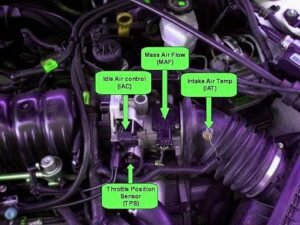
Air Control Valve
The bad condition of the Air Control Valve is among the most prevalent reasons for RPM fluctuations in cars. This valve plays a critical role in managing the airflow to the engine, and when it malfunctions, it can cause the RPM to fluctuate.
One of the prominent signs of an issue with this valve is the engine light turning on, signaling a problem that needs immediate attention. Ignoring these signs can lead to more significant engine problems, emphasizing the importance of addressing any air control valve issues promptly.
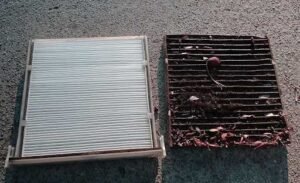
Transmission Issues
Transmission Issues can significantly affect the performance of your vehicle, leading to one of the common problems where the RPM goes up and down.
The transmission is pivotal in ensuring smooth engine operation; however, when there are problems, it can cause the engine to struggle, manifesting as RPM fluctuations. These issues can range from minor glitches that require simple fixes to more severe problems that might need a comprehensive overhaul.
Regular maintenance checks are crucial to identify and rectify any potential transmission problems before they escalate, keeping your vehicle running efficiently.
Fixing the RPM Going Up and Down
- To fix the fluctuating RPM in your vehicle, start by checking the engine for any problems. Incorrect tuning of the engine can lead to RPM fluctuation, so ensure your engine is tuned correctly whenever you have some free time.
- Leaks in the air intake system can also cause the RPM to go up and down; thus, getting it checked for any leaks is crucial.
- Regularly cleaning or replacing your car’s air filters can prevent such fluctuations.
- Similarly, spark plugs should be replaced with new ones if they have deteriorated over time.
- Don’t overlook the air vacuum system; check for leaks here as well.
- If your vehicle is not in use for extended periods, adding a fuel stabilizer to the fuel tank can help.
- Finally, making routine visits to a garage at least once a month, or more frequently depending on usage, can prevent your car from developing serious issues.
FAQs
Why does my RPM drop and go back up?
Your RPM may drop and go back up due to issues like a dirty or malfunctioning idle air control valve, vacuum leaks, problems with the fuel system, or faulty engine sensors. These conditions can disrupt the engine’s air-fuel mixture or ignition timing, causing fluctuations in engine speed.
Is 1000 RPM idle bad?
An idle RPM of 1000 is not necessarily bad and can be normal for some vehicles, especially when the engine is cold. However, if the vehicle’s normal idle RPM is significantly lower and the engine consistently idles at 1000 RPM when warm, it could indicate an issue that may need attention, such as a vacuum leak, dirty idle air control valve, or other engine management problems.
What is the ideal RPM for a car?
The ideal RPM for a car at idle typically ranges from 600 to 1000 RPM, depending on the make and model, and the engine’s design. For driving, optimal RPMs for fuel efficiency and performance usually fall between 2000 and 3000 RPM while cruising.
Also read: Why is smoke coming out of car vents?
Also read: Car That Refuses to Move in Drive
Also read: Won’t Stay Running Without Pressure on the Gas Pedal?
Final Words
In conclusion, understanding and maintaining the ideal RPM levels for your vehicle is crucial for ensuring its optimal performance and longevity. Regular checks and addressing issues related to RPM fluctuations can prevent more significant problems down the line, ensuring your vehicle runs smoothly and efficiently. Whether at idle or while cruising, keeping within the recommended RPM ranges will contribute to better fuel efficiency, reduced wear and tear, and a more enjoyable driving experience.
